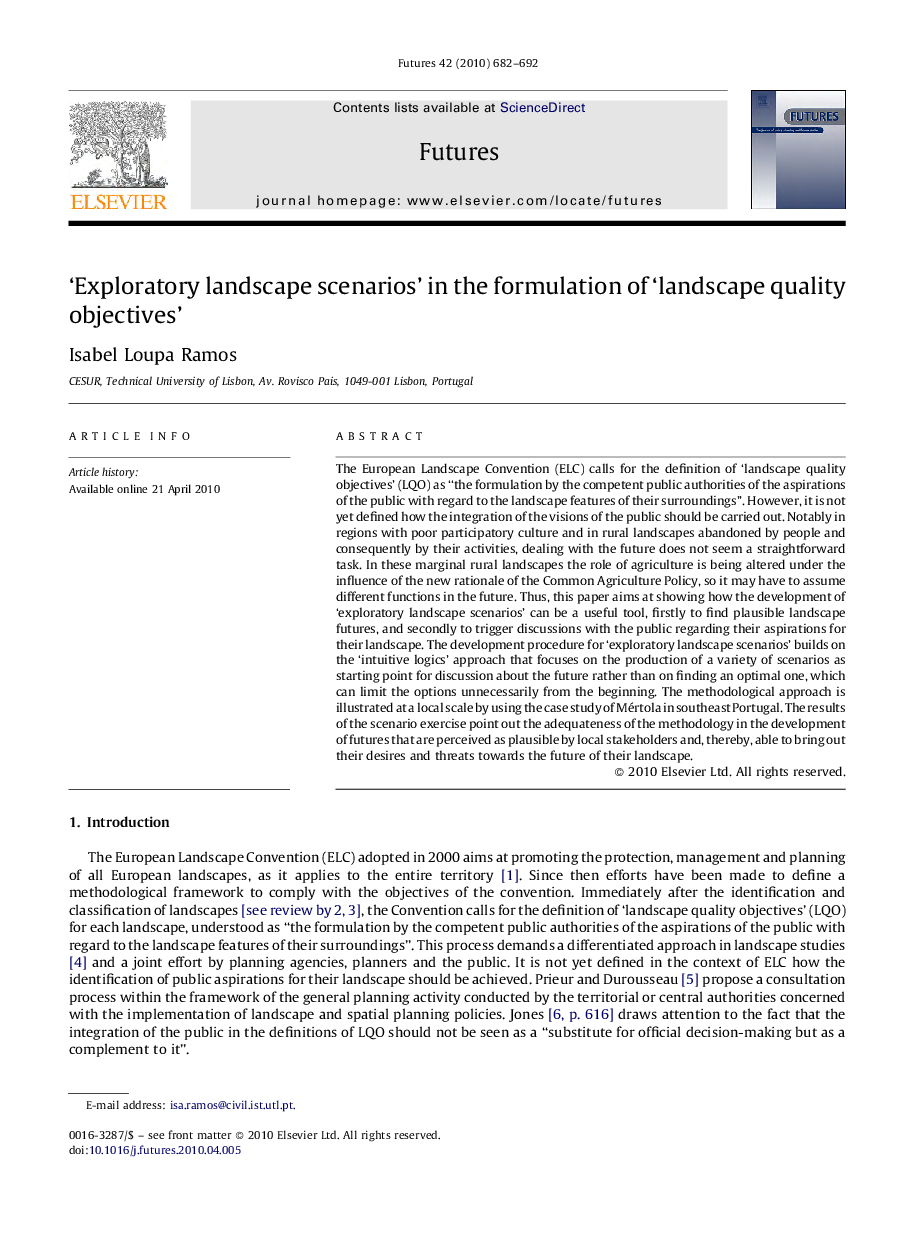| Article ID | Journal | Published Year | Pages | File Type |
|---|---|---|---|---|
| 1015937 | Futures | 2010 | 11 Pages |
The European Landscape Convention (ELC) calls for the definition of ‘landscape quality objectives’ (LQO) as “the formulation by the competent public authorities of the aspirations of the public with regard to the landscape features of their surroundings”. However, it is not yet defined how the integration of the visions of the public should be carried out. Notably in regions with poor participatory culture and in rural landscapes abandoned by people and consequently by their activities, dealing with the future does not seem a straightforward task. In these marginal rural landscapes the role of agriculture is being altered under the influence of the new rationale of the Common Agriculture Policy, so it may have to assume different functions in the future. Thus, this paper aims at showing how the development of ‘exploratory landscape scenarios’ can be a useful tool, firstly to find plausible landscape futures, and secondly to trigger discussions with the public regarding their aspirations for their landscape. The development procedure for ‘exploratory landscape scenarios’ builds on the ‘intuitive logics’ approach that focuses on the production of a variety of scenarios as starting point for discussion about the future rather than on finding an optimal one, which can limit the options unnecessarily from the beginning. The methodological approach is illustrated at a local scale by using the case study of Mértola in southeast Portugal. The results of the scenario exercise point out the adequateness of the methodology in the development of futures that are perceived as plausible by local stakeholders and, thereby, able to bring out their desires and threats towards the future of their landscape.
